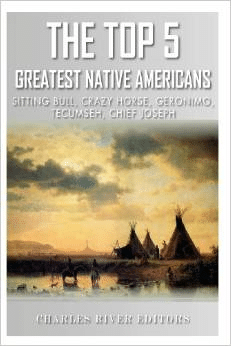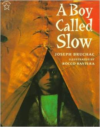Description
Includes pictures.
Includes bibliographies of each man
Tecumseh’s reputation among Americans has been both the most unique and anomalous. As the leader of the Shawnee, Tecumseh was the most famous Native American of the early 19th century, and he attempted to peacefully establish a Native American nation east of the Mississippi River in the wake of the American Revolution. Tecumseh allied with the British during the War of 1812 against the Americans, and he continued to fight on until he was killed at the Battle of the Thames. Without their leader, Tecumseh’s Confederacy began to rapidly disintegrate. The pan-Indian icon continues to be a household name across the United States today, nearly 200 years after his death.
The name “Geronimo” evokes a number of different emotions. Those who believed in 19th century America’s “Manifest Destiny” viewed Geronimo and all Native Americans as impediments to God’s will for the nation. Even today, many Americans associate the name Geronimo with a war cry, and the name Geronimo itself only came about because of a battle he fought against the Mexicans. Over time, however, those who empathized with the fate of the Native Americans saw Geronimo as one of a number of Native American leaders who resisted the U.S. and Mexican governments as their lands were being appropriated, often eluding large numbers of soldiers pursuing them.
Around the same time, Sitting Bull and Crazy Horse became legends at the Battle of the Little Bighorn, during which an estimated 2,000 Sioux and Cheyenne warriors inspired by one of Sitting Bull’s visions routed and then annihilated the 7th U.S. Cavalry led by George Custer. That disaster led the American government to double down on its efforts to “pacify” the Sioux, and by the end of the decade many of them had surrendered and been moved onto a reservation. Sitting Bull and Crazy Horse were two of the last Sioux leaders to surrender, and both suffered controversial deaths on reservations.
When he died in 1904, most Americans who knew his people’s story considered Chief Joseph, whose Nez Perce name is Himahtooyahlatkekt (“Thunder Rolling Down from the Mountains”), a military genius and an “Indian Napoleon.” This assessment of the Native American leader was based on a 1,500-mile odyssey during which he and his people left their reservation in the hopes of escaping to Canada, where the Nez Perce intended to join Sitting Bull and his Hunkpapa Sioux band. The real Chief Joseph was a gifted speaker and more diplomat than war leader. Joseph had inherited tribal leadership from his father in 1871, and for six tumultuous years he attempted to peacefully resist settlers who desired the tribe’s fertile potential farmland in the Wallowa Valley of present-day northeastern Oregon. Thus it was Chief Joseph who fought the Nez Perce War against the U.S. Army in 1877, earning grudging respect from the people who sought to defeat them.






Reviews
There are no reviews yet.